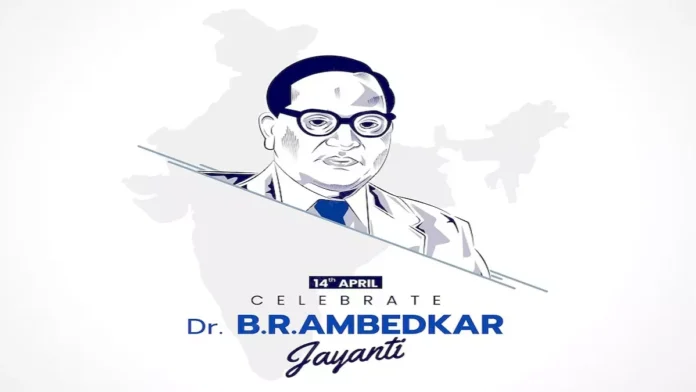India is observing the 134th birth anniversary of Dr. Bhimrao Ramji Ambedkar, the chief architect of the Indian Constitution. On this special occasion, tributes are being paid across schools, colleges, and government offices to honor his contributions to Indian society and democracy.
A Pioneer of Social Justice
Dr. B.R. Ambedkar was a visionary leader, social reformer, economist, and legal scholar. Born into a marginalized Dalit family, he dedicated his life to fighting social discrimination and promoting equality. He served as independent India’s first Law Minister and was instrumental in framing the Constitution of India.
Early Life and Education
Dr. Ambedkar was born on April 14, 1891, in Mhow, Madhya Pradesh. Despite facing severe caste-based discrimination, he excelled in academics. He completed his matriculation in 1907 and later pursued higher education in India and abroad.
Academic Achievements
He earned a Master’s degree from Elphinstone College, Mumbai, in 1915 with a focus on Economics, Sociology, History, Philosophy, and Anthropology. In 1916, he studied law at Gray’s Inn, London, and later earned a PhD in Economics from Columbia University in 1927. He was also awarded an honorary doctorate in 1952.
Author of Revolutionary Books
Dr. Ambedkar authored several important works that addressed critical social and economic issues in India. His major books include:
- The Problem of the Rupee: Its Origin and Its Solution (1923)
- Bahishkrit Bharat (1927)
- Federation Versus Freedom (1936)
- Annihilation of Caste (1939)
- Thoughts on Pakistan (1940)
India’s First Law Minister and Reformer
After independence, Dr. Ambedkar was appointed as the first Law Minister of India. He played a key role in introducing the Hindu Code Bill, which aimed to grant equal rights to women in matters of marriage, inheritance, and property.
Nation’s Tribute
Dr. Ambedkar was honored with the Bharat Ratna for his immense contributions to the nation. On this Ambedkar Jayanti, citizens across the country remember him not only as the Father of the Indian Constitution but also as a champion of justice, equality, and human rights.



